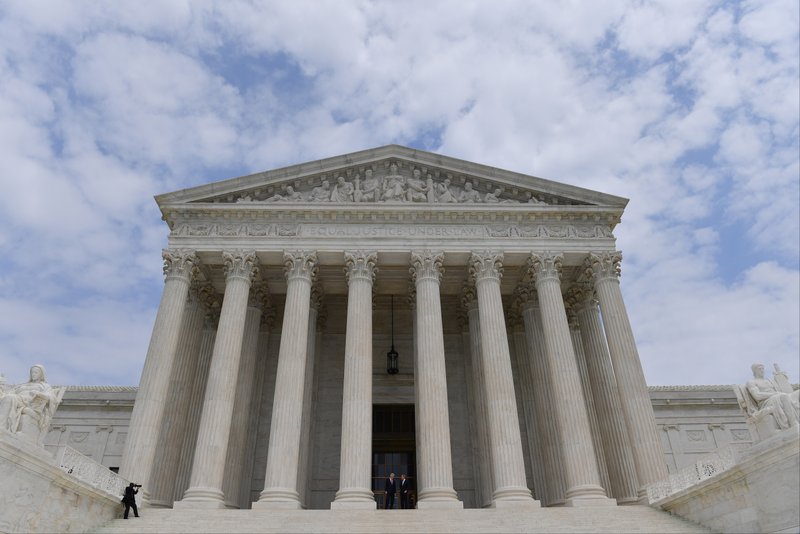WASHINGTON -- The Supreme Court heard arguments Wednesday in a case involving a Mississippi prosecutor who has tried a black man six times in a quadruple murder and has blocked the vast majority of black potential jurors.
During the hourlong arguments, Justice Clarence Thomas inquired about whether lawyers for Curtis Flowers had used their challenges against white jurors.
Thomas is known for remaining silent during oral arguments, and he last asked a question three years ago.
Flowers has been accused and convicted of killing four people -- Bertha Tardy, Carmen Rigby, Robert Golden and Derrick Stewart -- in July 1996 at a furniture store in Winona, Miss.
But two of his trials, in which more than one black person sat on the jury, ended with the jurors deadlocked. In three other trials, convictions were overturned because of misconduct on the part of District Attorney Doug Evans.
But the Mississippi Supreme Court upheld Flowers' 2010 conviction, in which Evans struck five of six black potential jurors. It said he had legitimate, race-neutral reasons for striking the jurors.
The question for the U.S. Supreme Court was whether it should ignore the history of the cases and concentrate only on the 2010 trial.
Justice Samuel Alito wondered what the court should do about the past.
Evans' past conduct was "very troubling," Alito said, and "certainly relevant."
He, Chief Justice John Roberts and others seemed to be searching for a rule that would guide courts about how far in the past they should go to judge whether a prosecutor's offered reasons for striking a juror are pretext.
Sheri Lynn Johnson, representing Flowers, said the court has made clear in past rulings that such history is relevant.
Some justices expressed concern about Evans' actions. Justice Sonia Sotomayor noted what she called Evans' "passion" for prosecuting Flowers, and Justice Elena Kagan said the difference in how Evans questioned white potential jurors and black potential jurors was "staggering."
As a jury is selected, some potential panel members are eliminated by the judge and lawyers for cause -- that they are likely to be biased, for instance, or because they say in a capital case that they could not impose the death penalty.
Prosecutors and defense attorneys also have what are known as peremptory challenges. They can strike potential jurors they simply don't want on the jury, and generally those choices cannot be second-guessed.
But in a 1986 case, Batson v. Kentucky, the Supreme Court said the challenges could not be used to strike a potential juror because of race.
A Section on 03/21/2019

